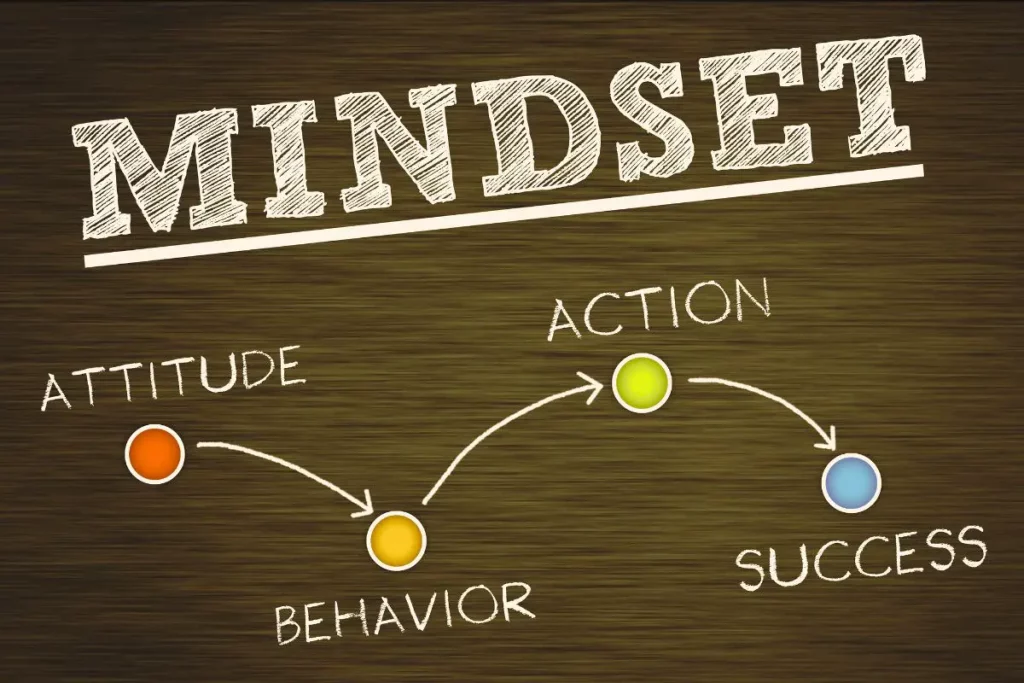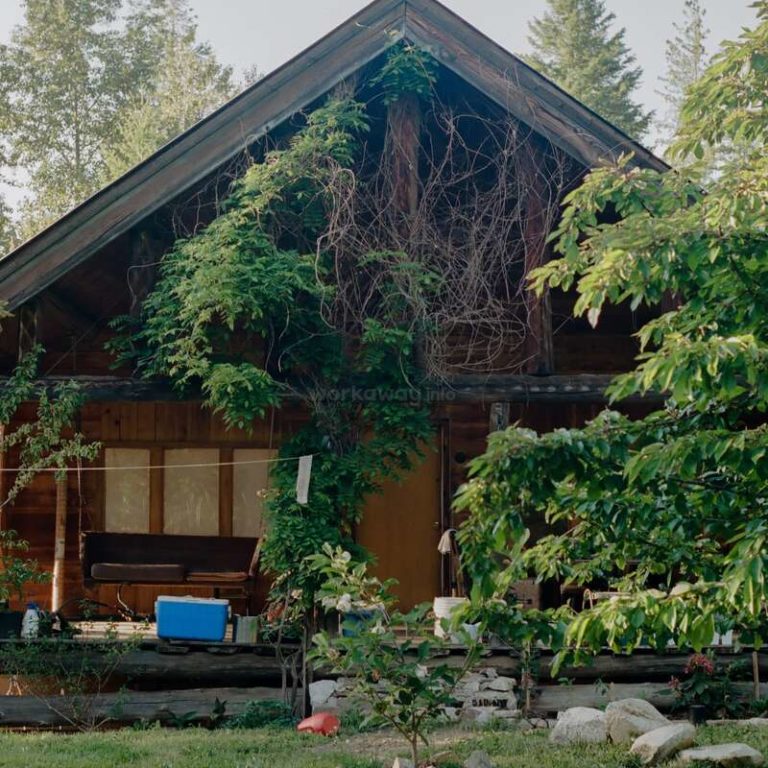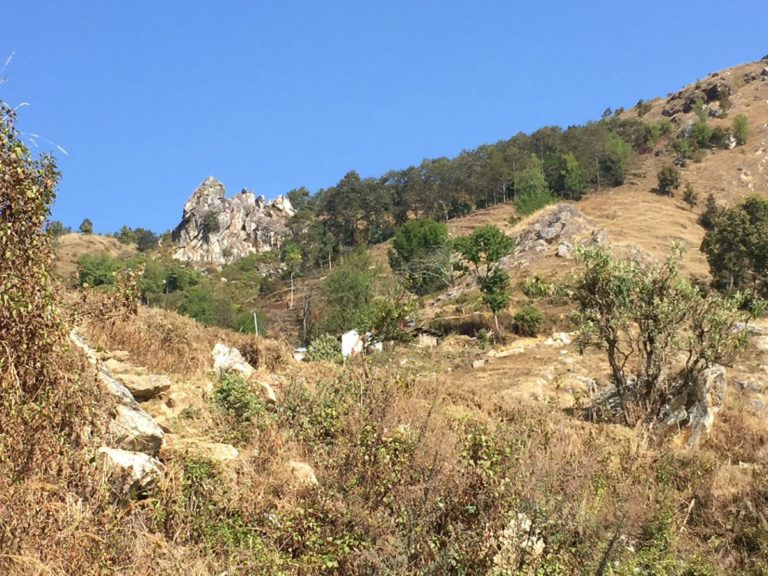Are you ready to unlock your full potential and embrace a life of purpose and fulfillment?
By embracing an off-grid mindset, you can tap into the transformative power of change to break free from limiting beliefs and conventional norms.
This mindset shift can help you cultivate a sense of self-sufficiency, resilience, and resourcefulness that will empower you to navigate life’s challenges with ease and confidence.
We’ll explore the transformative power of an off-grid mindset and how it can serve as a catalyst for positive change in your life.
Get ready to unleash your inner pioneer and embark on a journey of personal growth and transformation!
Embrace imperfection
Off-grid living encourages self-reliance and creative problem-solving, which can help you embrace imperfections and see them as opportunities for growth.
By living off the grid, you learn to rely on yourself and your own resources, rather than relying on public utilities and infrastructure.
This forces you to think outside the box and come up with creative solutions to everyday challenges.
For example, you might learn to build your own composting toilet, or to harvest rainwater for washing and drinking.
These skills require you to be adaptable, resourceful, and willing to take risks.
By embracing imperfections and seeing them as opportunities for growth, you can develop a strong sense of resilience and self-sufficiency.
This can help you to navigate challenges and setbacks with greater ease, and to appreciate the beauty and simplicity of a more self-reliant lifestyle.
Let go of material possessions
Living off-grid often requires downsizing and letting go of material possessions that no longer serve a purpose. This can help you focus on what truly matters and find joy in simpler living.
Living off-grid requires a deliberate shift in mindset and lifestyle.
One key aspect of this transition is downsizing and letting go of material possessions that no longer serve a purpose.
This can be a challenging but ultimately liberating process, as it allows you to focus on what truly matters and find joy in simpler living.
To begin, take inventory of your possessions and assess their usefulness and relevance to your off-grid lifestyle.
Consider items such as clothing, kitchen utensils, and furniture, and ask yourself which items you truly need and use regularly.
Be ruthless in your evaluation – if you haven’t used something in the past year, it’s probably safe to let it go.
As you sort through your belongings, consider the 80/20 rule: 80% of the time, you likely only use 20% of your possessions.
This means that most of your belongings are taking up space and collecting dust, rather than serving a useful purpose.
By letting go of these items, you’ll not only declutter your living space but also reduce your energy consumption and waste production.
Once you’ve sorted through your possessions, it’s time to let go of any emotional attachment you may have to certain items.
This can be difficult, but it’s essential for living a clutter-free and sustainable lifestyle.
Remember that possessions are just that – they’re objects that can be replaced if needed.
Your happiness and well-being are not dependent on material possessions.
By embracing the process of downsizing and letting go of material possessions, you’ll open yourself up to a world of possibilities.
You’ll be able to focus on what truly matters – connecting with nature, fostering community, and living a fulfilling life.
The simpler your life becomes, the more room you’ll have for new experiences, learning, and growth. Living off-grid requires a mindful approach to material possessions.
Downsizing and letting go of items that no longer serve a purpose can help you focus on what truly matters and find joy in simpler living.
By decluttering your living space, you’ll reduce energy consumption and waste production, making your lifestyle more sustainable.
To fully embrace the benefits of downsizing, it’s essential to let go of any emotional attachment you may have to certain items.
Remember that possessions are just objects that can be replaced if needed, and your happiness and well-being are not dependent on material possessions.
By embracing the process of downsizing and letting go of material possessions, you’ll open yourself up to a world of possibilities.
You’ll be able to focus on connecting with nature, fostering community, and living a fulfilling life.
The simpler your life becomes, the more time you’ll have to explore and discover new experiences, learning, and growth.
Connect with nature
Living off-grid allows you to be more connected with nature, which can promote a sense of awe and wonder, and help you appreciate the beauty of the world around you.
Living off-grid allows you to immerse yourself in the beauty of nature, unplugged from the stresses of modern life.
By disconnecting from the grid, you can reconnect with the natural world, cultivating a deeper sense of awe and wonder.
The stars at night, the sun on your face, the songs of birds, and the rustle of leaves all become amplified, drawing you into a world of magic and mystery.
Off-grid living allows you to slow down, take a deep breath, and truly appreciate the beauty of the world around you.
You begin to notice the subtle changes in the seasons, the unique patterns of nature, and the intricate interconnectedness of all living things.
This heightened awareness of the natural world can bring about a profound sense of peace and gratitude, reminding you of the immense beauty and wonder that surrounds you every day.
Develop a growth mindset
Living off-grid requires adaptability, resilience, and a willingness to learn. This can help you develop a growth mindset and see challenges as opportunities for growth.
Living off-grid requires a distinct set of skills and mindsets that can help you develop a growth mindset and see challenges as opportunities for growth.
Adaptability, resilience, and a willingness to learn are important qualities that can help you thrive in an off-grid lifestyle.
Adaptability allows you to adjust to the ever-changing nature of off-grid living, from unpredictable weather patterns to unexpected breakdowns of equipment.
Resilience enables you to bounce back from setbacks and overcome obstacles, such as lack of resources or unforeseen expenses.
A willingness to learn helps you to continuously improve your skills and knowledge in areas such as renewable energy, agriculture, and self-sufficiency.
By embracing these qualities, you can transform challenges into opportunities for growth and personal development, leading to a more fulfilling and self-sufficient lifestyle.
Focus on experiences over possessions
Off-grid living often requires sacrificing material possessions in favor of experiences. This can help you find joy in experiences and connections with others.
Off-grid living often requires sacrificing material possessions in favor of experiences.
By letting go of superfluous items and focusing on the things that truly bring value and joy to our lives, we can find a sense of freedom and fulfillment that is difficult to achieve in a consumerist society.
Instead of investing in material possessions, off-grid individuals often choose to spend their money on experiences like travel, outdoor adventures, and cultural events.
This can lead to a more satisfying and meaningful life, as experiences have a way of enriching our souls and fostering connections with others.
Whether it’s learning a new skill, trying a new hobby, or simply spending time with loved ones, the experiences we have off the grid can bring a sense of purpose and joy that we might not find in material possessions.
By choosing experiences over possessions, we can live a more intentional and fulfilling life that is aligned with our values and passions.
Embrace community
Living off-grid often requires collaboration and community, which can help you develop a sense of belonging and connection to others.
Living off-grid often requires collaboration and community, which can help you develop a sense of belonging and connection to others.
Off-grid living can be a challenging and rewarding experience, but it can also be isolating if you don’t have a supportive community around you.
Collaborating with others who are also living off-grid can provide a sense of camaraderie and shared purpose.
For example, you might work together to build a wind turbine or install a rainwater harvesting system.
These shared experiences can help you develop a strong sense of belonging and connection to others, which can be particularly important when living in a remote or isolated area.
Living off-grid often requires creativity and resourcefulness, which can be fostered through collaboration and community.
By working together and sharing knowledge and skills, you can create a more sustainable and fulfilling way of life.
Be open to change
Living off-grid can be unpredictable, and being open to change can help you adapt to new situations and find opportunities for growth.
Living off-grid can be unpredictable, and being open to change can help you adapt to new situations and find opportunities for growth.
As an off-gridder, you will face a variety of challenges and surprises that require flexibility and a willingness to adapt.
For example, you may encounter unexpected weather patterns, equipment failures, or changes in your personal circumstances that require you to reevaluate your plans and strategies.
By being open to change and embracing the uncertainty of off-grid living, you can develop a mindset that is resilient, resourceful, and capable of finding opportunities for growth in unexpected situations.
In practice, this might involve being open to trying new things, exploring alternative solutions, and being willing to learn from your mistakes.
It also means being prepared to pivot when circumstances change, and being able to think on your feet to respond to unexpected challenges.
By cultivating a mindset of openness and adaptability, you can not only survive but thrive in the unpredictable world of off-grid living.
Trust in your own abilities
Living off-grid often requires self-reliance and trust in your own abilities. This can help you develop confidence in your own abilities and find strength in your resilience.
Living off-grid frequently necessitates a high degree of self-reliance and confidence in one’s own abilities.
You may need to fix your own plumbing, wiring, and HVAC systems, among other things.
In addition, you may need to produce your own food or collect and store your own water.
At first, such challenges may be daunting and outside the comfort zones of many people.
However, as you begin to adapt and make do without modern conveniences, your trust in your own abilities and resilience will develop.
Living off-grid requires overcoming problems on your own and learning to rely only on yourself.
You learn to trust your ability to create solutions as needs arise.
The resilience and self-sufficiency you build may surprise you.
You may discover a strength you never knew you had.
When a major breakdown occurs or the grid goes down, you’ll be prepared and confident that you can overcome the obstacles because you have the knowledge and skills to survive on your own.
Want More? Dive Deeper Here!
Hey there! If you’re the type who loves going down the rabbit hole of information (like we do), you’re in the right spot. We’ve pulled together some cool reads and resources that dive a bit deeper into the stuff we chat about on our site. Whether you’re just killing time or super into the topic, these picks might just be what you’re looking for. Happy reading!
- (PDF) The ‘How’ of Transformative Change: Stories from the Salish Sea | Fay Weller – Academia.edu
- GISMo lab’s innovative plan to make electricity cheaper, greener and more reliable | SLAC National Accelerator Laboratory
- SLAC, Stanford Team Finds a Tough New Catalyst for Use in Renewable Fuels Production | SLAC National Accelerator Laboratory
- Danielle Wood named as Bloomberg New Economy Catalyst — MIT Media Lab






